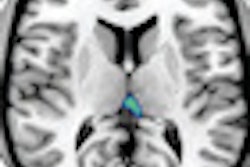
NEW YORK (Reuters Health) - A short course of radiation therapy (RT) prior to total mesorectal excision (TME) for rectal cancer cuts the long-term risk of recurrence in half, according to data presented at the plenary session of the 52nd annual meeting of the American Society for Radiation Oncology (ASTRO).
"This landmark trial provides the longest follow-up so far showing that radiation therapy benefits optimally operated patients with rectal cancer," presenter Dr. Corrie A. Marijnen told Reuters Health.
She noted that local recurrence is a major problem in rectal cancer, affecting up to 45% of patients treated by blunt dissection of the tumor. TME, developed roughly 20 years ago, has since become the gold standard treatment for rectal cancer.
So at the start of the European TME trial, she said, "the question was would you still need RT if patients received the most effective surgery? To our surprise, the answer was yes."
A total of 1,861 patients with resectable tumors were treated at 84 hospitals between 1996 and 1999, with median follow-up of 11 years. Dr. Marijnen, from Leiden University Medical Center, the Netherlands, and her team randomly assigned patients to 25 Gy in five fractions prior to TME, or TME alone.
Ten-year local recurrence rates were 6.4% in patients treated with RT and 13.3% in the surgery alone group (p < 0.001). RT was also associated with significantly lower overall recurrence (28.8% versus 33.6%, p = 0.042).
Their subgroup analysis showed that the recurrence benefit was restricted to patients with a negative circumferential resection margin, positive lymph nodes, and with tumors more than 5 cm from the anal verge. The only group to experience improved overall survival with RT included those with a negative resection margin and positive lymph nodes (51% at 10 years versus 41%, p = 0.02).
"This is potentially a very important trial looking at the addition of preoperative, short-term radiation therapy in the setting of rectal cancer," said Dr. Arnab Chakravarti, chair of the department of radiation oncology at The Ohio State University Comprehensive Cancer Center - Arthur G. James Cancer Hospital and Richard J. Solove Research Institute.
He told Reuters Health that there were two differences between the TME trial protocol and the U.S. standard of care: U.S. patients often receive chemotherapy in addition to radiation and surgery, which could be why the trial showed little survival benefit.
Also, radiotherapy in the U.S. usually involves a dose of 45-50 Gy administered at 1.8 Gy/fraction. "What they did was shorten the course by giving a higher dose per fraction," Dr. Chakravarti said.
Dr. Chakravarti was not involved in the research.
By Karla Gale
Last Updated: 2010-11-02 17:11:24 -0400 (Reuters Health)
Related Reading
Preoperative radiotherapy reduces rectal cancer recurrences, March 6, 2009
Copyright © 2010 Reuters Limited. All rights reserved. Republication or redistribution of Reuters content, including by framing or similar means, is expressly prohibited without the prior written consent of Reuters. Reuters shall not be liable for any errors or delays in the content, or for any actions taken in reliance thereon. Reuters and the Reuters sphere logo are registered trademarks and trademarks of the Reuters group of companies around the world.



















